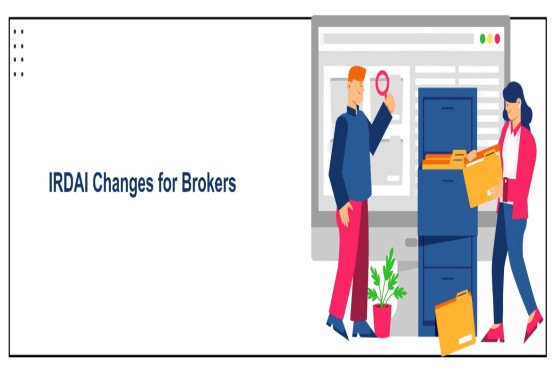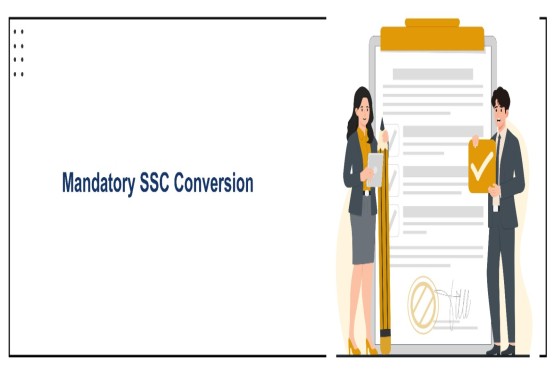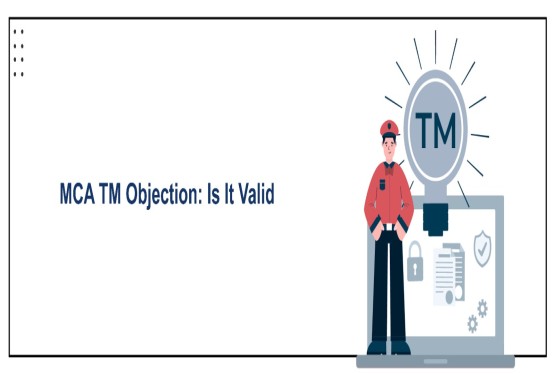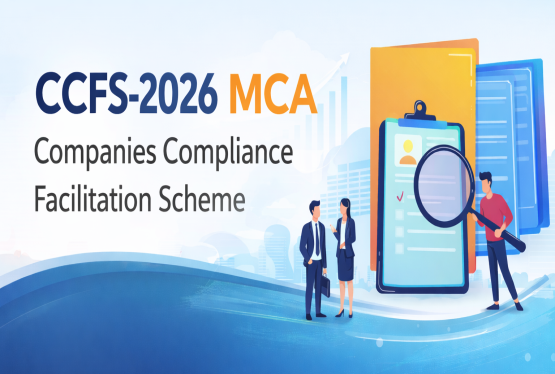The Corporate Agency License is a regulatory certification granted by the Insurance Regulatory and Development Authority of India (IRDAI), allowing companies to operate as intermediaries that solicit and service insurance products on behalf of insurance companies, which do by their own insurance company compliance. This license ensures that only qualified and compliant entities participate in insurance distribution, thereby safeguarding consumer interests and maintaining industry standards. Below is a complete explanation of all aspects of obtaining this license.
The Corporate Agency Model
What is a Corporate Agent?
A Corporate Agent is an entity such as a company, LLP, bank, NGO, or cooperative society that has been authorized by the IRDAI to distribute insurance products. These agents act on behalf of insurance companies to solicit business, offer customer support, and help with policy servicing. A corporate agent bridges the gap between insurance providers and customers by extending the market reach of insurers.
What is a Corporate Agency License?
The Corporate Agency License is an official permit that allows an organization to act as a corporate agent. Without this license, no entity can legally distribute or solicit insurance products. The license ensures regulatory oversight and aligns the corporate agent’s functioning with the IRDAI (Registration of Corporate Agents) Regulations, 2015.
Categories of Corporate Agency Licenses
Corporate agents can operate in the insurance space under the following categories. Each category has specific permissions and limitations:
Corporate Agent – Life Insurance
This license enables the corporate agent to distribute only life insurance products, including term life, endowment, whole life, and ULIPs. The agent can form partnerships with up to three life insurance companies, as per regulatory norms.
Corporate Agent – General Insurance
Under this category, the corporate agent distributes non-life insurance products such as motor insurance, travel insurance, property insurance, and liability policies. The agent can tie-up with three general insurers.
Corporate Agent – Health Insurance
This license allows distribution of health-specific insurance products like Mediclaim, critical illness, personal accident policies, etc. Agents are permitted to work with three health insurance companies.
To know more about difference between corporate agent and insurance broker.
Corporate Agent – Composite Insurance
Composite insurance includes a combination of life, general, and health insurance. A composite agent can distribute the full spectrum of insurance products, with partnerships limited to three insurers per category.
Why a Corporate Agency License is Necessary
Regulatory Compliance and Legal Recognition
The license serves as a regulatory mechanism to ensure that only fit and proper entities engage in insurance distribution. It provides legal recognition to the entity and ensures accountability to IRDAI.
Market Access and Product Diversification
With a corporate agency license, a business gains access to offer a wide range of insurance products, enhancing their service portfolio and customer offerings. This improves both revenue potential and brand value.
Consumer Protection and Trust Building
IRDAI licensing assures customers that the corporate agent is monitored, follows ethical business practices, and is legally authorized to offer insurance services thereby building consumer trust.
Eligibility Criteria to Apply for the License
To apply for a corporate agency license, an applicant must satisfy specific criteria outlined under the Corporate Agent Regulations:
Net Worth Requirement
The applicant must have and maintain a minimum net worth of Rs.50 Lakhs. This ensures financial strength and capacity to carry out insurance distribution operations effectively.
Legal Form of the Applicant
Eligible applicants include companies under Companies Act, 2013, LLPs under LLP Act, 2008, co-operative societies, banks and Regional Rural Banks, micro-finance institutions and NGOs registered under RBI or Cooperative Societies Act, any other entity recognized by IRDAI
Principal Officer (PO) Qualifications
The entity must appoint a Principal Officer, who is the key functionary responsible for insurance activities. The PO must be a graduate who has Complete 50 hours of training (75 hours for composite insurance) and Passed the IRDAI-specified exam be appointed exclusively to oversee insurance operations
Infrastructure Requirements
The applicant must have adequate office space required equipment and digital resources, trained human resources for insurance services.
Fit and Proper Criteria
The applicant, Principal Officer, and Directors must meet the “Fit and Proper” criteria no criminal records, ethical business history, financial integrity not debarred by any financial regulator in the last three years
Step-by-Step Process to Obtain the License
The licensing procedure involves two main stages: Login Credential Request and License Application Submission. The same can be seen in Insurance Regulatory and Development Authority (Licensing of Corporate Agents) Regulations, 2002.
Stage 1: Submission of Request for Login Credentials
To begin, the applicant must submit a request to IRDAI through the Corporate Agency Portal by uploading the following documents certificate of Incorporation, memorandum of Association (MoA), net Worth Certificate (Certified by a Chartered Accountant), audited Financial Statements of last two years
Once approved, the applicant receives login credentials to access the portal.
Stage 2: Application for License through Portal
Using the login credentials, the applicant must upload all required documents and submit the license application:
Documents to be Uploaded Include:
-
Company Profile
-
Form A (Application form under Schedule I) attached below
-
Certificate of Incorporation
-
Organization Chart with clear identification of PO
-
Latest Net Worth Certificate
-
PO’s training, qualification, and examination documents
-
Fit and Proper undertakings from PO and Directors
-
Board-approved Policy on:
-
Business model
-
Tie-up strategy (single/multiple insurers)
-
Grievance redressal mechanism
-
Reporting procedures (as per Reg. 14(iv))
-
Code of Conduct Undertaking
-
In-principle consent letters or agreements from insurance companies
-
Proof of infrastructure: lease documents, employee list, hardware/software inventory
-
Business Plan and Strategy for selling insurance Declarations regarding:
-
Foreign Direct Investment (FDI)
-
PO’s exclusive role in insurance
-
Absence of registration with other financial regulators (if applicable)
-
-
Financial documents:
-
Projected Profit & Loss and Balance Sheet for next three years
-
Audited financials for last three year, IRDAI may request additional documents depending on the specific case.
-
Application Fee and Registration Fee for Corporate Agency License
When applying for a Corporate Agency License, the financial commitments begin with the application processing fee and are followed by the registration fee upon in-principle approval of the application. These two fees are mandatory, non-negotiable, and regulated by IRDAI. Below is an in-depth explanation of each:
Application Fee: Rs.10,000 + Applicable GST
Purpose of the Application Fee
The application fee is levied to initiate the preliminary evaluation of the applicant's eligibility, business structure, documentation, and proposed insurance operations. It covers the administrative cost incurred by IRDAI in processing the application.
Key Points: The fee amount is Rs.10,000 (Rupees Ten Thousand).
-
This fee is non-refundable, regardless of whether the application is approved or rejected.
-
The applicable Goods and Services Tax (GST) must be added to the fee amount. Currently, GST is typically levied at 18%, so the total payable may be Rs.11,800.
Mode of Payment:
Applicants have two options for making the payment:
-
Demand Draft (DD): To be drawn in favor of IRDAI, payable at Hyderabad.
-
Electronic Transfer: NEFT/RTGS/IMPS to IRDAI’s specified bank account. The payment reference must be quoted in the application.
Payment Timing:
-
The application fee must be submitted along with Form A, which is the formal application form for the license.
-
Without this fee, the application will be considered incomplete and non-processable.
Registration Fee: Rs.25,000 + Applicable Taxes
Purpose of the Registration Fee
After the initial scrutiny of the application and verification of the supporting documents, if IRDAI is satisfied with the applicant’s compliance and infrastructure, it issues an “in-principle approval”. Upon receiving this communication, the applicant is required to pay the registration fee to formally secure the license.
Key Points:
The registration fee is Rs.25,000 (Rupees Twenty-Five Thousand). This is a one-time payment for the issuance of the Corporate Agency License. Applicable GST must also be paid along with the fee, which can bring the total amount payable to around Rs.29,500 depending on prevailing tax rates.
Mode of Payment will be similar to the application fee; this fee can also be paid through:
-
Demand Draft (DD) payable at Hyderabad in favor of IRDAI
-
Online banking transfer, quoting the reference number from the in-principle approval
Payment Deadline:
The payment must be made within 15 days of receiving the in-principle approval from IRDAI.Failure to pay within the deadline may lead to cancellation of the approval, and the applicant may have to restart the process.
Important Compliance Notes
Both payments must be supported with documentary proof, such as UTR number or transaction receipt (for online transfers)or Photocopy of DD with bank acknowledgment (if DD is used). These proofs must be uploaded to the portal or submitted physically to IRDAI depending on their instructions. All fees must be paid in Indian currency from an Indian bank account. Foreign remittances are not accepted for licensing purposes.
Why These Fees Are Important
These fees are not just formalities but serve as a regulatory gateway. The application fee filters only serious applicants, reducing frivolous or incomplete applications. The registration fee confirms the applicant’s financial readiness and commitment to enter the insurance distribution business.
The IRDAI uses these fees to support document examination, background checks, technical evaluations, system administration and inspections
Summary of Fee Structure
|
Type of Fee |
Amount |
GST (18%) |
Total Payable |
When Payable |
|
Application Processing Fee |
Rs.10,000 |
Rs.1,800 |
Rs.11,800 |
At the time of initial application |
|
Registration Fee |
Rs.25,000 |
Rs.4,500 |
Rs.29,500 |
After in-principle approval, within 15 days |
Issuance of the Certificate of Registration
After successful verification of documents and fee payments, IRDAI issues a Certificate of Registration (CoR) in Form B, officially recognizing the applicant as a corporate agent in the selected insurance category.
Validity and Renewal of License
The validity of the license is three (3) years from the date of issue. Renewal applications must be filed before expiry, along with updated compliance documentation and renewal fees.
Grounds for Rejection of Corporate Agency License Application by IRDAI
Obtaining a Corporate Agency License from the Insurance Regulatory and Development Authority of India (IRDAI) is a regulated and document-intensive process. IRDAI ensures that only compliant, ethical, and financially sound entities enter the insurance distribution space. Therefore, any application that fails to meet the prescribed regulatory and procedural standards may be rejected. Below are the primary grounds on which IRDAI may reject a corporate agency license application, explained in detail.
Incomplete or Inaccurate Information
One of the most frequent causes for rejection of an application is the submission of incomplete or incorrect information. IRDAI requires the application form (Form A) and all annexures to be filled out accurately and completely. Any omission, inconsistency, or factual error whether intentional or accidental can lead to disqualification. For example, if details of the Principal Officer, company address, or insurer tie-ups are missing or incorrectly entered, the application may be considered non-compliant. Similarly, incorrect financial figures or unsupported claims in the business plan may result in immediate rejection.
Failure to Meet Eligibility or Documentation Requirements
IRDAI has laid down specific eligibility criteria and documentation mandates for applicants seeking a Corporate Agency License. These include a minimum net worth of Rs.50 lakhs, proper legal registration of the entity, a qualified and trained Principal Officer, and adequate infrastructure. If the applicant fails to satisfy any of these eligibility norms or does not submit the required supporting documents such as audited financial statements, net worth certificate, or proof of infrastructure the application is liable to be rejected. In some cases, even minor gaps like unsigned declarations or expired certificates can result in rejection.
Criminal or Regulatory History of Key Persons
The background of the applicant’s key managerial personnel plays a crucial role in the approval process. IRDAI requires a declaration of good conduct and financial propriety from the company’s directors, promoters, and Principal Officer. If any of these individuals have a history of criminal prosecution, regulatory action by financial authorities like SEBI, RBI, or even IRDAI itself, or have been involved in financial frauds, the application may be rejected. This is to ensure that only trustworthy and ethical individuals manage insurance operations, which involve handling sensitive consumer financial data.
Failure to Satisfy "Fit and Proper" Criteria
Under IRDAI’s Corporate Agent Regulations, applicants must demonstrate that their directors, Principal Officer, and controlling persons are "fit and proper". This standard includes factors like honesty, integrity, reputation, competence, and financial soundness. For example, if the Principal Officer does not meet the educational qualification, training, or certification requirement, or if a director is involved in financial misappropriation, the application may be denied. IRDAI reviews declarations, legal history, and professional conduct to determine whether the applicant can be entrusted with insurance distribution responsibilities.
Non-Payment of Prescribed Fees
The Corporate Agency License application process involves two mandatory payments: an application processing fee of Rs.10,000 and a registration fee of Rs.25,000 (after in-principle approval). These fees must be paid through a demand draft or online transfer to IRDAI, with valid proof of payment submitted along with the application. If an applicant fails to pay the fee, pays an incorrect amount, or omits proof of payment, the application is treated as incomplete and rejected. Since the application fee is non-refundable, applicants are advised to verify payment details before submission.
Reapplication After Rejection
If an application is rejected by IRDAI on any of the above grounds, the applicant is not allowed to amend or rectify the existing application. Instead, they must file a fresh application, including all documents, declarations, and payment of fees once again. Moreover, the new application must demonstrate that the earlier deficiencies have been addressed. Reapplication after rejection may also subject the applicant to greater scrutiny by the Authority, particularly if the grounds for rejection were serious (e.g., regulatory violations or false declarations).
Timeline for Approval
The typical time required to obtain the license is 2 to 6 months, depending on the completeness of documents, IRDAI’s workload, and the nature of business operations.
Revenue Model: How Do Corporate Agents Earn?
Corporate agents earn revenue from, commission on policies sold, consulting or advisory fees, incentives and bonuses for business volume, retainer fees or royalty income in some cases, profit-sharing arrangements, depending on agreements with insurers
These income streams make corporate agency a profitable opportunity, especially for banks, NBFCs, and other large organizations.
Role of Compliance Firms like Compliance Calander LLP
Legal and compliance service providers such as Compliance Calander LLP offer comprehensive support for obtaining the corporate agency license by:
Your Business
They assess your organizational structure and business model to identify compliance needs and ensure the right category selection.
End-to-End Documentation
From preparing Form A to compiling business plans and declarations, these firms manage the paperwork meticulously.
Application Filing & Follow-Up
They file the application on your behalf, respond to IRDAI queries, and monitor application progress.
Legal Compliance & Advisory
They offer strategic advice to remain compliant post-registration and assist in addressing any regulatory objections or inspections.
Conclusion
Obtaining a Corporate Agency License is a well-defined but documentation-intensive process. With the growing insurance penetration in India, the role of corporate agents is vital for expanding access to insurance products. By following the IRDAI-prescribed procedure and ensuring regulatory compliance, businesses can diversify revenue, enhance customer value, and operate within a trusted legal framework. Whether it’s a fintech startup, a bank, or a cooperative, securing this license marks the first step toward professional insurance intermediation.
FAQs
Q1. Can a company engage in both insurance distribution and other financial services simultaneously after obtaining the Corporate Agency License?
Ans. Yes, a company can carry out other financial services alongside insurance distribution, provided it maintains an arm’s length relationship between the two lines of business. The financials, operations, and compliance records of the insurance activity must be separately maintained, and IRDAI may scrutinize them independently to avoid any conflict of interest or regulatory breaches.
Q2. Is it mandatory for a Corporate Agent to tie up with three insurers in each category?
Ans. No, it is not mandatory to have three tie-ups. A corporate agent can choose to partner with one, two, or up to three insurers per category (life, general, or health). However, multiple tie-ups provide a diversified product portfolio and help cater to varied customer needs, which may be advantageous in competitive markets.
Q3. What happens if the Principal Officer resigns or is replaced after the license is granted?
Ans. If the Principal Officer (PO) resigns, retires, or is replaced, the corporate agent must immediately inform the IRDAI and appoint a new PO who meets all eligibility criteria. The new PO must undergo the required training and certification. The license remains valid, but operations should pause temporarily until the new PO is formally appointed and approved.
Q4. Can a corporate agent operate in multiple states or pan-India with one license?
Ans. Yes. A Corporate Agency License granted by IRDAI is national in scope, allowing the corporate agent to operate across all states and union territories of India without requiring separate state-wise licenses. However, the agent must comply with local laws, maintain sufficient manpower, and establish infrastructure where necessary.
Q5. Is there a requirement to renew or revalidate the training and certification of employees or Principal Officers?
Ans. Yes. While the initial certification is valid for the duration of the license, IRDAI encourages periodic training and refresher courses to ensure that the Principal Officer and employees remain updated with evolving products, compliance guidelines, and market practices. Renewal of certification may be mandated at the time of license renewal or during audits.
Q6. Can a foreign company or foreign-invested Indian company apply for a Corporate Agency License?
Ans. Yes, a company with foreign direct investment (FDI) can apply for a Corporate Agency License, subject to compliance with FDI limits in insurance intermediaries as per the prevailing FDI policy and IRDAI guidelines. As of recent regulations, up to 100% FDI is permitted under the automatic route in insurance intermediaries, including corporate agents.
Q7. Are there restrictions on the type of insurance products a corporate agent can sell?
Ans. Yes. A corporate agent can only solicit and sell retail and individual policies, and is generally not allowed to service or solicit large corporate or reinsurance policies. The scope is primarily restricted to mass-market, standard insurance products approved by insurers and IRDAI.
Q8. What kind of audit or reporting obligations exist for a registered corporate agent?
Ans. Corporate agents are required to submit periodic reports to IRDAI, including:
-
Sales data by product type and insurer
-
Grievance redressal reports
-
Annual returns
-
Training and compliance certifications
-
Changes in management or PO
Additionally, corporate agents are subject to IRDAI inspections and audits at any time.
Q9. Can a Corporate Agent outsource its insurance distribution operations?
Ans. No. The core functions of insurance solicitation, customer interaction, and policy servicing cannot be outsourced. However, non-core support services like call center operations, data entry, or backend IT services may be outsourced with proper documentation, but the corporate agent remains fully accountable to IRDAI for any outsourced activities.
Q10. What happens if the Corporate Agent fails to comply with regulations after obtaining the license?
Ans. Non-compliance may lead to penalties, suspension, or cancellation of the license. IRDAI has the power to initiate inquiries, impose fines, or revoke the license if the corporate agent:
-
Engages in mis-selling
-
Misrepresents insurers or policies
-
Fails to maintain net worth or documentation
-
Does not comply with grievance redressal obligations
Regular audits and transparency are necessary to retain the license in good standing.
Q11. Can a Corporate Agent upgrade from a single-category license to a composite license later?
Ans. Yes. A corporate agent holding a license in one category (say, life insurance) can apply for expansion into general, health, or composite categories. This will require submission of additional documents, updated Form A, revised business plans, and payment of additional fees as per IRDAI norms.
Q12. Is GST applicable on the commission or fees earned by corporate agents?
Ans. Yes. The commission or service fees earned by corporate agents are subject to Goods and Services Tax (GST) as per prevailing tax laws. The agent must obtain a GST registration and file returns as per the GST Act.











































































_crop10_thumb.jpg)


































































_crop10_thumb.jpg)
_crop10_thumb.jpg)



_crop10_thumb.jpg)


_crop10_thumb.jpg)





_crop10_thumb.jpg)

_crop10_thumb.jpg)














-suratgujarat-section-158_crop10_thumb.jpg)
-suratgujarat_crop10_thumb.jpg)
-(33)_crop10_thumb.jpg)



-ahmedabad_crop10_thumb.jpg)
-learn_crop10_thumb.jpg)

-learnn_crop10_thumb.jpg)



























































_crop10_thumb.jpg)























_Guidelines_learn_crop10_thumb.jpg)























_learn_crop10_thumb.jpg)
_crop10_thumb.jpeg)










_crop10_thumb.jpg)




_Second_Amendment_Rules,_2025_learn_crop10_thumb.jpg)







_learn_crop10_thumb.jpg)











































_learn_crop10_thumb.jpeg)























_learn_crop10_thumb.jpg)



_rd_roc_learn_crop10_thumb.jpg)
















_learn_crop10_thumb.jpg)














_learn_crop10_thumb.jpg)
_Learn_crop10_thumb.jpg)











































_learn_crop10_thumb.jpg)




_learn_crop10_thumb.jpg)













_crop10_thumb.jpeg)




















